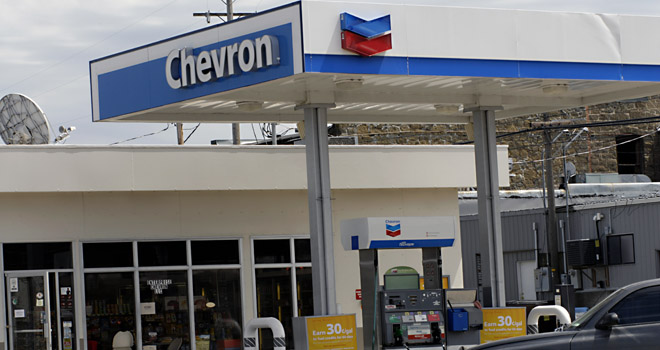Energy Secretary and Nobel Prize winner Stephen Chu dropped a little science on OPEC Thursday, announcing that America would try to devalue its pricey oil by unleashing 30 million barrels of its own via the Strategic Petroleum Reserve. Adding to its oomph, the move was part of a coordinated effort with US allies in the International Energy Agency, who are contributing another 30 million barrels themselves.
Chu said in a statement that they were tapping the reserve “due to supply disruptions in Libya and other countries and their impact on the global economic recovery.” But will their plan actually make a difference?
At the very least it lets Democrats dragged down by high oil prices point to actual concrete steps to address the situation. Not surprisingly, party leaders were mostly gung ho on the move.
“We have to pop that bubble, bring down the price of gas at the pump, put more money back in people’s pockets, and help get the economy moving again,” Minority Leader Nancy Pelosi told reporters. “I think it was a very good decision, and we commended the President on that decision.”
Some left-leaning wonks agree there might be some modest stimulative effect to the move: a group of fellows at the Center For American Progress quickly put out a report likening it to a “tax cut for American families” that could save them north of $100 million a day at the pump. An economist at Moody’s predicted brief economic gains as well.
But many experts and analysts are far more skeptical. Charles Ebinger, a fellow at Brookings who helped craft the original Strategic Petroleum Reserve in the 1970s, dismissed the exercise as a distortion of its original purpose that would bear little economic fruit.
“Gas prices have already been going down and the expectation is they would go down 15 to 20 percent just because of market forces,” he said. “I hate to say it because I’m a supporter of the President, but I can’t see it as anything more than a brazen political act to convince people he’s doing something about gas prices.”
Ebinger noted that the reserve was created to handle only the most extreme supply shortages. Unrest in Libya, which the stated cause of the IEA move, falls far short of any serious danger and the length of time it takes to move reserve supplies to the market mean the reserve oil will mostly miss the summer spike in gas prices.
Even among Democrats, some high ranking members found the move puzzling. The Democratic chair of the Senate Energy and Natural Resources Committee, Jeff Bingaman (D-NM) noted in a statement on Thursday that the Libya crisis was months old and gas prices had already begun to normalize.
“This decision would have been more timely if made when the disruption in Libyan oil supplies first occurred,” Â he said. “However, I hope it helps deflate speculative froth in the markets and further settles prices back to levels where most experts believe they should be.”
Republicans were predictably less kind, accusing the president of gimmickry and saying the move validates their argument that America needs to encourage more oil production and remove restrictions on drilling.
Speaker Boehner said in a statement that “it is good that the Obama Administration is conceding that increased supply will lower those costs. But by tapping the Strategic Petroleum Reserve, the President is using a national security instrument to address his domestic political problems.”









